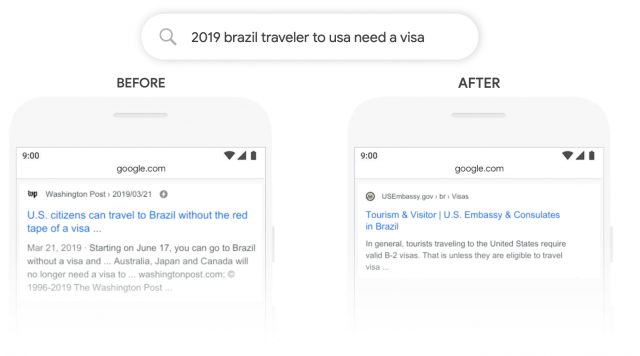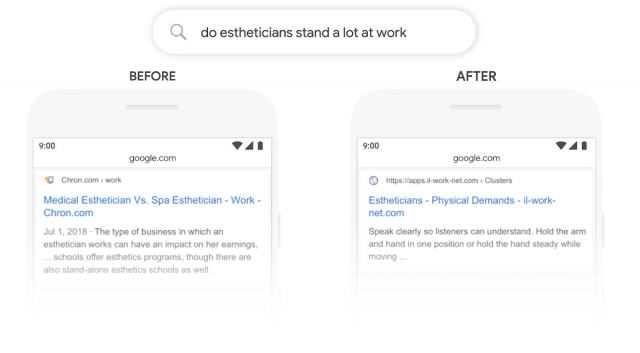
Contributors:
Julia Filo
Nov 07, 2019
To the tune of “Sesame Street”:
 Sunnnny days, sweeping search reeeeesults away
Sunnnny days, sweeping search reeeeesults away 
This week, the SEO world has been abuzz about BERT: the new search algorithm update from Google. Proclaimed by Google to be the "biggest leap forward in the past five years, and one of the biggest leaps forward in the history of search," BERT (Bidirectional Encoder Representations from Transformers) is the latest in an industry-wide shift toward natural language processing.

BERT is a major milestone in the quest for natural language processing: its application will affect approximately one out of every ten searches. In simpler terms, the search algorithm will begin better understanding the intricacies of the human tongue and how we speak, rather than reading for keywords. Although the algorithm has been progressing towards this for the past few years, BERT is the most notable algorithm update.
BERT improves search results for queries, both typed and spoken, that are likely to use a question format. This is extremely important because 1) we expect 50% of all searches to be voice searches by 2020, and 2) we already know that using voice search is the fastest way to ask longer, more complicated questions. Our new friend BERT can understand complicated questions and give better answers by interpreting tendencies in human speech. Check out some examples of BERT’s magic below:


In strict SEO terms, you can’t. But create a content writing strategy that focuses on customer needs - not keywords - and you’re halfway there. Good content answers questions, is written in a concise, helpful way and uses keywords to enhance understanding -not to muddle. You’ll also want to pay attention to some long-tail search queries in your next round of keyword research as you prepare for the voice search trend.
If you’ve got a bit of content on your website and you’ve noticed a drop in organic traffic, begin by re-thinking your most-visited pages. It’s likely that the content on these pages could be better optimized for readability and understanding. You can use Google Analytics and Google Webmaster tools to identify these key pages.
Google image examples from https://www.seroundtable.com/google-bert-update-28427.html